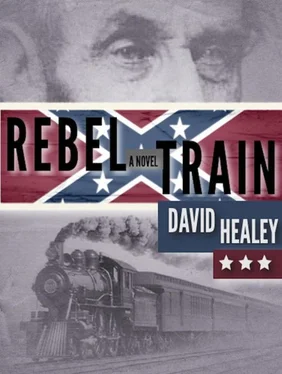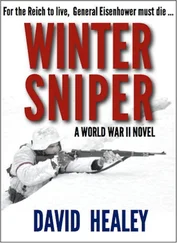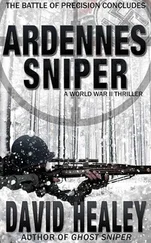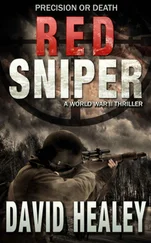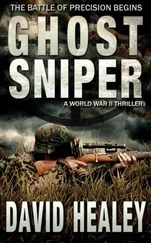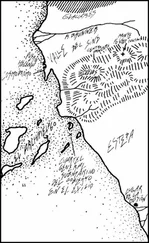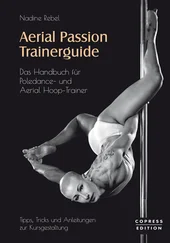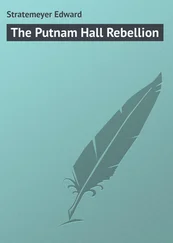Behind him, Pettibone let out a Rebel yell. “Chew on that, you Yankee sons of bitches!”
• • •
“Here it comes!” Greer shouted in warning.
Then he watched in horror as the fireball rolled toward them. At first, Greer wasn’t sure what the raiders were up to, setting the boxcar on fire. The next thing he knew, the Lord Baltimore was rushing headlong into the flames. He realized then that the raiders must have uncoupled the car.
“I can’t see!” Schmidt shouted as fire swept around the locomotive, licking at the cab. The impact sent a tornado of sparks swirling into the sky.
Schmidt reached for the Johnson bar to reverse the locomotive. Greer grabbed his wrist. “Oscar, you will not stop this train,” he growled. “Keep after them.”
“We’ll be burned up!”
“This locomotive is made of iron, and iron doesn’t burn. Now keep that throttle wide open.”
The train rushed blindly into a world of flame. The wind fanned the burning car into an inferno. Ribbons of fire whipped and curled around the locomotive. The four men in the cab — Greer, Captain Lowell, Schmidt and Prescott — sheltered inside as flames swept past the windows. They wouldn’t be able to continue the chase much longer before the inside of the cab became a death trap, hot as an oven.
• • •
Walter Frost huddled with the soldiers. He was able to see ahead of the engine as it rounded a slight curve in the tracks. Smoke and heat enveloped the train, threatening to choke them. The Chesapeake was no more than two hundred feet ahead and Frost could see four raiders standing on the platform of the last car, looking back at the flaming boxcar. They were a tough bunch, he thought, but the second time around, they wouldn’t stand a chance against a whole squad of soldiers. The raiders had just been lucky back at Kearneysville.
Frost felt rage burn within him, hot as the flames filling the sky. Those Rebel bastards had caused him, Schmidt and Greer a lot of trouble, maybe even good jobs with the railroad, and, like Greer, he was all for hanging the raiders alongside the tracks.
If they could catch them. Frost’s rage gave way to glee when he saw their chance to leave the burning boxcar behind. The men in the locomotive’s cab, he knew, couldn’t see anything but flames. Frost crawled forward.
“Greer!” he shouted, keeping his head beneath the billowing sheet of flame and smoke. “There’s a siding about two hundred yards ahead. Slow it down and we can lose the boxcar.”
Schmidt, too, had heard the fireman. He had already begun easing back on the throttle, and at a nod from Greer, he used all his strength to pull back the Johnson bar and reverse the engine. Frantically, Frost grabbed the brake wheel and screwed it down. The train ground to a halt, spewing steam, smoke and flames. Frost jumped down from the tender and ran to the siding. While they waited for Frost to throw the switch, Schmidt backed the engine away from the fireball.
The siding had an abandoned air about it. Most likely, it was used only a few times each year to load timber or hogs or corn. The switch was stiff with rust, and Frost heaved with all his might at the lever. Greer jumped down and ran over to help. Grunting and cussing, the two men finally got the switch to move.
Schmidt eased the locomotive forward until he once again came in contact with the burning car. He pushed it onto the siding, then reversed the engine. Once the locomotive was back on the main track, Frost and Greer moved the switch again so the train could bypass the siding. The boxcar was left alone, filling the sky with smoke and flames. Some of the soldiers whooped and hollered as the car burned.
The delay was maddening. By the time Greer and Frost were done and back aboard the train, the raiders had disappeared from sight. Nearby, the boxcar hissed and popped as flames poured from it.
Greer swung aboard. Frost took his place on the tender. “After them!” Greer barked. “The next time we stop, we’re going to have ourselves a hanging party.”
• • •
“We lost them,” Johnny Benjamin reported as he peered into the distance.
“You did it, Flynn. I reckon your crazy plan worked, after all,” Pettibone said with a grin. “For a while there, I thought you was goin’ to roast us.”
“They’ll be after us again,” Flynn said. “All we did was get a little extra time. The closer we get to the rendezvous, the better our chances.”
Far off, they could see the smoke from the burning car. Because the smoke was now rising straight up, it appeared the boxcar had brought the Yankees to a halt. They noticed, too, that the eastern horizon was getting dark as night came on, although the sky to the west was still bright blue above the mountain peaks. The river that the tracks followed was deep in shadow, cold and misty.
Around them, the country had changed considerably. The flat, Maryland farm country they had crossed that morning was long-gone, as were West Virginia’s gently rolling hills. They were now in the Allegheny mountains — the name for that portion of the Appalachian range that ran like a bony spine through Virginia, West Virginia, Maryland and up into Pennsylvania.
The Alleghenies were from two-thousand to nearly five thousand feet high, not tall compared to the huge mountain ranges in the west, but rugged country nonetheless, with steep slopes studded with rocky outcroppings that angled sharply toward the river.
The tracks followed the flat river bed as it wound through the Alleghenies, twisting and winding on itself like a copperhead snake. Gone, too, was the languid Potomac they knew so well. Here in the mountains, it had become a wild thing, foaming over boulders and fallen timber. The water was swift and shallow, clear and cold, and the river had narrowed to the point where a man could easily pitch a stone across.
It was a cruel country, especially with night coming on. The kind of place that would be glad to see a man die. There was nowhere to run except the river and mountains. The raiders had their backs to the wall.
“Here they come,” Flynn said.
Behind them, the smoke trail of the pursuing engine looked like a banner in the sky. Then the train itself appeared, thundering up the tracks as if the locomotive itself were angry and bent on revenge. The tracks began to climb slightly. The Chesapeake had slowed to the point where a man could run alongside and keep up. The wet, green wood in the tender could keep the train going, but it was impossible to build any speed without a full head of steam. There was no longer a boxcar to set ablaze or railroad ties to heave off.
“Looks like this is it, boys,” Pettibone said.
Benjamin nervously licked his lips. “You reckon they’ll hang us if they catch us?”
Flynn checked the Le Mat to make sure it was properly loaded. “That’s a possibility, lad. But there’s no surer way to end up dead than being afraid of dying. Fear freezes a man up worse than any winter cold.”
Pettibone shook his head and grinned. “Why is it you Irish have something to say about everything?”
“’Tis a gift,” Flynn said.
Benjamin checked his guns as well. He had taken Cook’s revolver, so that he was now armed with two Colts. “Well, I reckon if I’m goin’ to die, I’m goin’ to take a few Yankees with me.”
Flynn clapped him on the shoulder. “That’s the spirit, lad. Everything’s going to be all right. Just make each shot count.”
The Yankee train thundered up the tracks, gaining on the raiders every minute.
All at once, they became aware of someone running beside their car. Benjamin swung both pistols at the runner.
“Don’t shoot, lad!” Flynn shouted, and leaned down to help Colonel Percy onto the car. The Chesapeake , which had once hurtled down the tracks awesome speed, had slowed to the point where a man could jump on or off if he was quick. One misstep meant being ground to bits beneath the wheels.
Читать дальше
